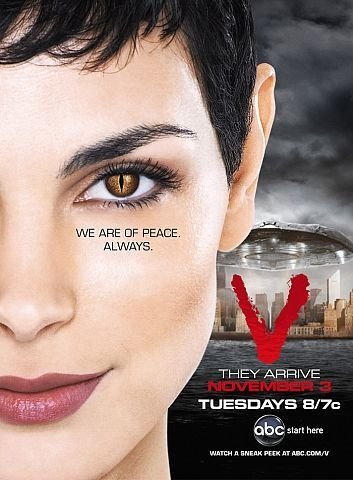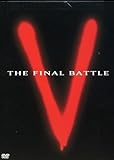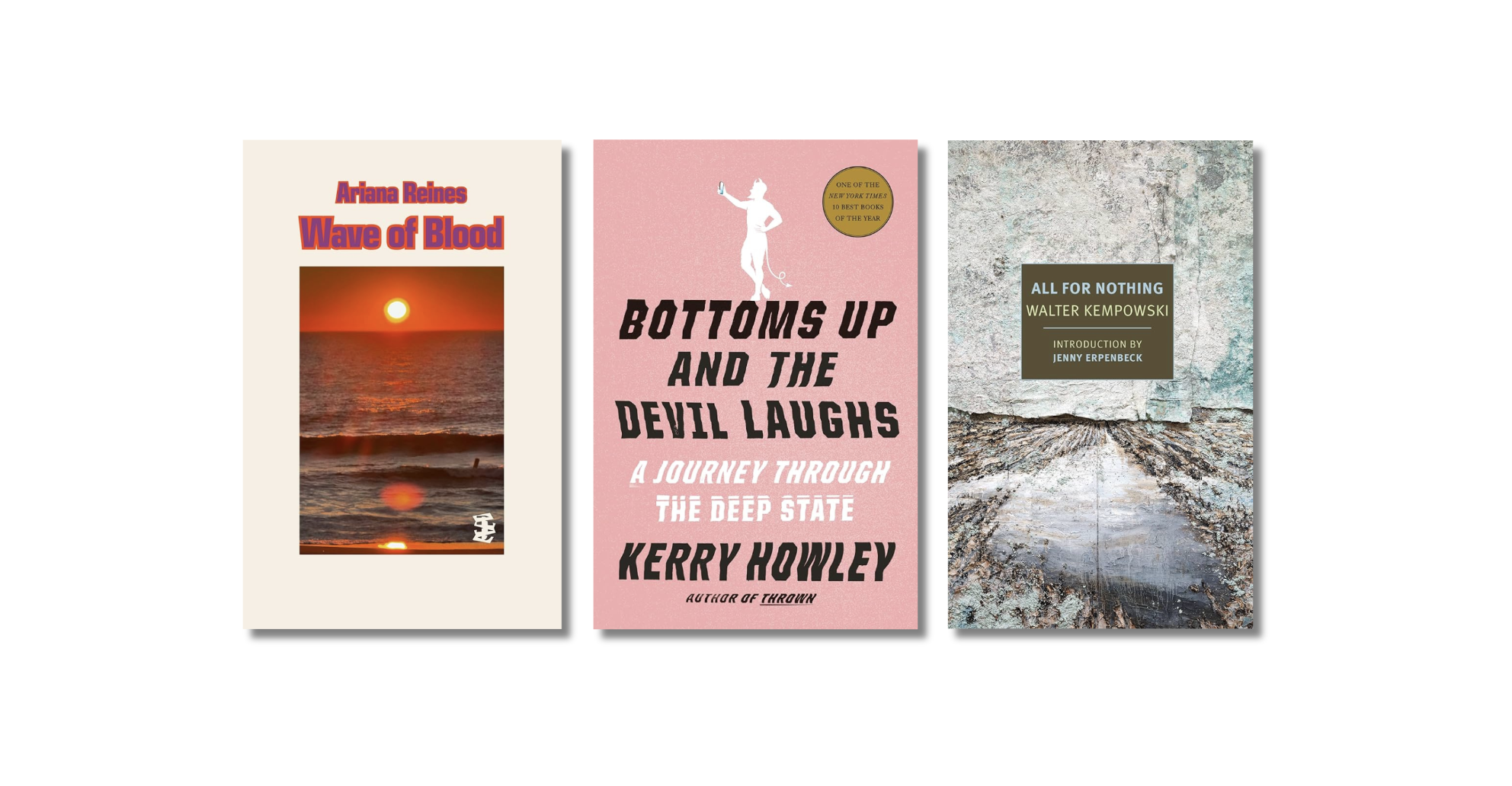1.
 The revamped V (for those who don’t tune in: V stands for Visitors) on ABC has me completely hooked. Crazy but true, I DVR Giada De Laurentiis cooking shows in the same click as human-munching reptile aliens. And I’ve got my husband addicted too. He’s been away in Salt Lake City since the show’s March return. During the commercial breaks, we dial each other like high school kids.
The revamped V (for those who don’t tune in: V stands for Visitors) on ABC has me completely hooked. Crazy but true, I DVR Giada De Laurentiis cooking shows in the same click as human-munching reptile aliens. And I’ve got my husband addicted too. He’s been away in Salt Lake City since the show’s March return. During the commercial breaks, we dial each other like high school kids.
Me: “The kid just got lizard licked!”
Hubs: “Whatever, that’s a hot alien. I’d let her lick me.”
Me: “That’s her candy coating. Underneath she’s got snake eyes.”
Hubs: “Still, she’s hot.”
Me: “You’re despicable. Don’t you have any human pride?”
These are the not-so-adult conversations between us.
I grew up in a sci-fi loving home courtesy of my dad who’s a product of the Final Frontier generation—Shatner and Nimoy and the Lost in Space Robot. A child of the 80s, I was suckled on Star Wars and Quantum Leap. However, as I grew into adulthood, I became something of a sci-fi snob, rolling my eyes and shaking my head at laser beams and the Galactica crew heroics. I acquiesced to my dad’s 24/7 Sci-Fi Channel whenever I visited home, but beyond that my interest in extraterrestrials and spaceships was nonexistent. Until now. Like I said, I’m completely bewitched. Some of this could be blamed on my aforementioned childhood.
 The original V miniseries aired in 1983. I watched it, snuggled beside my dad who attempted to cover my eyes during the “bad parts.” To this day, my mom denies this memory—because she would never, never have allowed such a thing. And maybe so, but obviously she wasn’t invited to the daddy-daughter sci-fi party. I distinctly remember burying my face in my dad’s arm when Diana (the V leader) expanded her jaw and swallowed a guinea pig whole. My dad yelled, “Dadburnit, she’s a snake!” (Note: This is probably the basis of my fear of snakes, lizards, frogs and turtles.) It was terrifying! Yet even then, I was completely captivated.
The original V miniseries aired in 1983. I watched it, snuggled beside my dad who attempted to cover my eyes during the “bad parts.” To this day, my mom denies this memory—because she would never, never have allowed such a thing. And maybe so, but obviously she wasn’t invited to the daddy-daughter sci-fi party. I distinctly remember burying my face in my dad’s arm when Diana (the V leader) expanded her jaw and swallowed a guinea pig whole. My dad yelled, “Dadburnit, she’s a snake!” (Note: This is probably the basis of my fear of snakes, lizards, frogs and turtles.) It was terrifying! Yet even then, I was completely captivated.
 There was something about the miniseries that transcended the average “Beam me up, Scotty.” Despite the lizard thing, it was intellectual and deeply affecting. So it comes as no surprise it was inspired by Sinclair Lewis’s It Can’t Happen Here. A novel chronicling fascism in the United States. According to television lore, the director-producer Kenneth Johnson wrote an adaptation of the book entitled Storm Warnings in 1982. NBC executives rejected it. Too heavy for average American viewers who were lining up at the box office for films like Tron and E.T. So they dumbed it down: made the American fascists into man-eating reptilian humanoids, and the show premiered to rave reviews on May 3, 1983.
There was something about the miniseries that transcended the average “Beam me up, Scotty.” Despite the lizard thing, it was intellectual and deeply affecting. So it comes as no surprise it was inspired by Sinclair Lewis’s It Can’t Happen Here. A novel chronicling fascism in the United States. According to television lore, the director-producer Kenneth Johnson wrote an adaptation of the book entitled Storm Warnings in 1982. NBC executives rejected it. Too heavy for average American viewers who were lining up at the box office for films like Tron and E.T. So they dumbed it down: made the American fascists into man-eating reptilian humanoids, and the show premiered to rave reviews on May 3, 1983.
Johnson later explained that the series was intended to be a political thriller and a Nazi allegory. From the Swastika-like emblems on the Visitor’s uniforms and the “Friends of the Visitors” youth movement to the mass broadcasting of messages mimicking Nazi radio propaganda. Humans in the show were forced to choose sides: collaborate with the occupying forces or join underground resistance movements, like the Fifth Column. While the brunt of Nazi persecution was targeted at Jews, the Visitors attacked anyone opposed to their dogma. Their infiltration of human society begins as a subterfuge but eventually transitions to a full-fledged military coup d’etat. The original series went so far as to incorporate a Holocaust survivor, the grandfather of Daniel Bernstein, who duly noted history’s repetition.

 V ran roughly three hours and twenty minutes and was so successful in the ratings that the 1984 sequel V: The Final Battle was produced, supposedly to conclude the saga. But viewers couldn’t let go and the network wouldn’t pass up capitalizing on its popularity. V: The Series ran from 1984 to 1985 without Johnson as director. He left during The Final Battle after a disagreement with NBC executives on how the story should progress.
V ran roughly three hours and twenty minutes and was so successful in the ratings that the 1984 sequel V: The Final Battle was produced, supposedly to conclude the saga. But viewers couldn’t let go and the network wouldn’t pass up capitalizing on its popularity. V: The Series ran from 1984 to 1985 without Johnson as director. He left during The Final Battle after a disagreement with NBC executives on how the story should progress.
2.
Twenty-seven years later, the story is as fresh as it was in 1983. As fresh as it was in 1935.
Let’s face it—fascism still scares the hell out of us. The idea of social interventionism to promote the state’s interests is terrifying. Social indoctrination by way of state-regulated education and media propaganda makes our skin crawl. Eugenics for the purpose of social hygiene is monstrous. Discrimination based on culture, gender and sexuality is a nasty battle we fight daily. A hunger for expansionist imperialism, ideologically and physically, lingers on. Turn on the nightly news, tune into reality, and notes of Lewis’s novel and Johnson’s script continue to echo.
This may be exactly why V has seen such popularity with the 2010 audience. We live in a world where history repeats itself; where old ideas cloak themselves in various contemporary skins and pretty packages for each budding generation. The series continues to strike a chord because in a non-didactic way, it reminds us that the catastrophes of our past are but a handful of forgetful seasons away.
3.
Currently on the show, V spaceships loom over all the major cities. Anna (the 2010 V leader) promises peace, opens cure-all health centers and introduces advances in technology that surpass anything the world has ever seen. Using mass media, she seeks to indoctrinate a devoted following of humans involved in her Peace Ambassadors program. From the outside, the arrival of the V’s looks rosy, but beneath is a diabolical agenda to take over the Earth.
The updated series has been hit by a tidal wave of controversy. Rumor has it that it’s an allegorical representation of President Barack Obama’s administration. Many critics have pointed out the subtextual nods. In her review for The Washington Post, Lisa de Moraes noted that the series debuted on the first anniversary of Obama’s election, and that carefully embedded catchphrases like “hope”, “change”, and “universal health care” are frequently used by the Visitors.
Glenn Garvin of the Chicago Tribune wrote that the show was a “rousing sci-fi space opera about alien invaders bent on the conquest (and digestion) of all humanity, it’s also a barbed commentary on Obamamania that will infuriate the president’s supporters and delight his detractors.”
Additionally, critical bloggers were quick to point out lines that hold an uncanny resemblance to quotes by Obama staff members. In one episode about a natural disaster that the V’s intervene to solve, Anna tells a news reporter, “There’s tragedy every day, all over your world—so many opportunities to help.” Likewise, Obama’s Chief of Staff Rahm Emanuel is quoted as saying, “Never let a serious crisis go to waste… it’s an opportunity to do things you think you could not do before.”
At the 2009 Television Critics Association Summer Press Tour session for V, the three producers Scott Peters, Jace Hall and Jeffrey Bell discussed the controversy. Peters explained, “Listen, I think that shows are open to interpretation. People bring subjective thoughts to it. And if you want to ascribe those words to the Visitors or to whatever is going on in our society, that’s sort of up to the viewer, but there’s no particular agenda to hone in on those specific things.”
Bell followed up, “We are talking about the metaphors and allegories here, and at a certain level, I just want to remind people it’s a show about spaceships on ABC at 8 p.m.”
Peters went on to clarify: The show is about the dangerous side of blind devotion. “ What happens when you don’t ask questions about the things you believe in?” he said. “And I think that can be applied across the board whether you are talking about a political issue or a religious issue or a relationship issue, any number of things.”
Alien spaceships making us pause in our prime time television consumption and (gasp!) think? Wouldn’t that be revolutionary! The producers’ comments may not lay the Obama controversy to rest, but we could use a little social reminder these days—even if it comes as science-fictionalized reptile aliens masked in hot human form plotting world conquest and mankind annihilation. Like the namesake characters, there’s more than meets the eye in V.









